Olamilekan Wahab
Improving Yorùbá Diacritic Restoration
Mar 23, 2020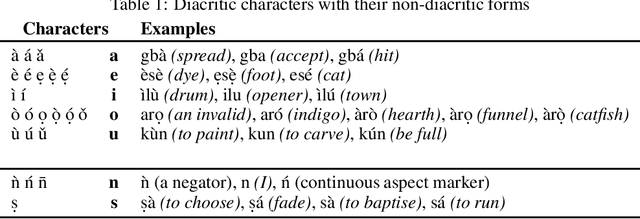
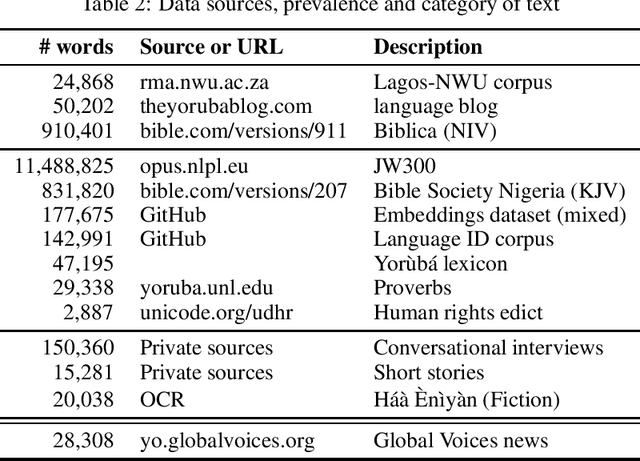
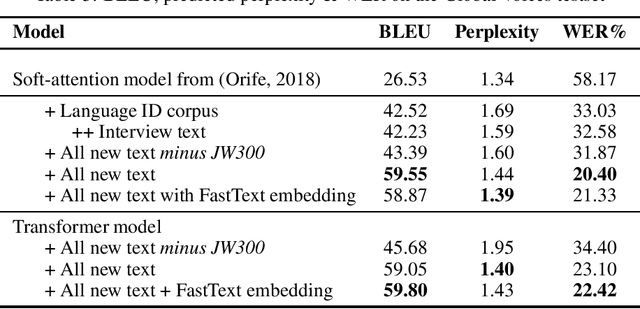
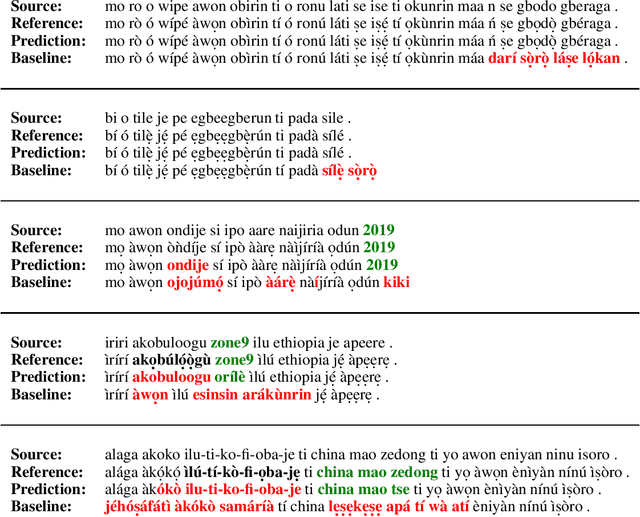
Abstract:Yor\`ub\'a is a widely spoken West African language with a writing system rich in orthographic and tonal diacritics. They provide morphological information, are crucial for lexical disambiguation, pronunciation and are vital for any computational Speech or Natural Language Processing tasks. However diacritic marks are commonly excluded from electronic texts due to limited device and application support as well as general education on proper usage. We report on recent efforts at dataset cultivation. By aggregating and improving disparate texts from the web and various personal libraries, we were able to significantly grow our clean Yor\`ub\'a dataset from a majority Bibilical text corpora with three sources to millions of tokens from over a dozen sources. We evaluate updated diacritic restoration models on a new, general purpose, public-domain Yor\`ub\'a evaluation dataset of modern journalistic news text, selected to be multi-purpose and reflecting contemporary usage. All pre-trained models, datasets and source-code have been released as an open-source project to advance efforts on Yor\`ub\'a language technology.
NASS-AI: Towards Digitization of Parliamentary Bills using Document Level Embedding and Bidirectional Long Short-Term Memory
Oct 02, 2019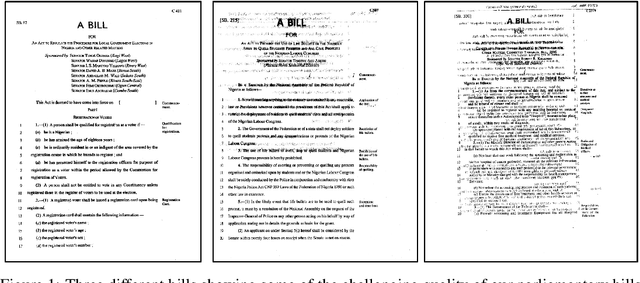

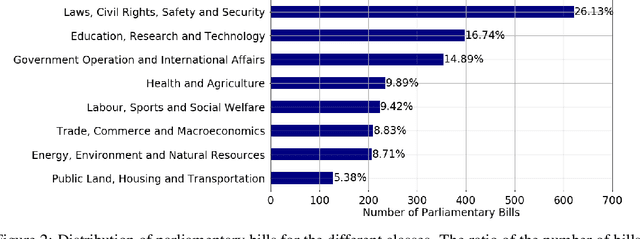
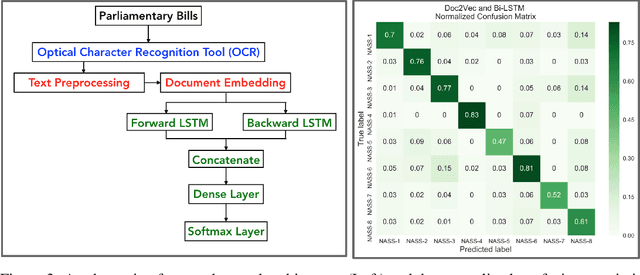
Abstract:There has been several reports in the Nigerian and International media about the Senators and House of Representative Members of the Nigerian National Assembly (NASS) being the highest paid in the world. Despite this high-level of parliamentary compensation and a lack of oversight, most of the legislative duties like bills introduced and vote proceedings are shrouded in mystery without an open and annotated corpus. In this paper, we present results from ongoing research on the categorization of bills introduced in the Nigerian parliament since the fourth republic (1999 - 2018). For this task, we employed a multi-step approach which involves extracting text from scanned and embedded pdfs with low to medium quality using Optical Character Recognition (OCR) tools and labeling them into eight categories. We investigate the performance of document level embedding for feature representation of the extracted texts before using a Bidirectional Long Short-Term Memory (Bi-LSTM) for our classifier. The performance was further compared with other feature representation and machine learning techniques. We believe that these results are well-positioned to have a substantial impact on the quest to meet the basic open data charter principles.
 Add to Chrome
Add to Chrome Add to Firefox
Add to Firefox Add to Edge
Add to Edge